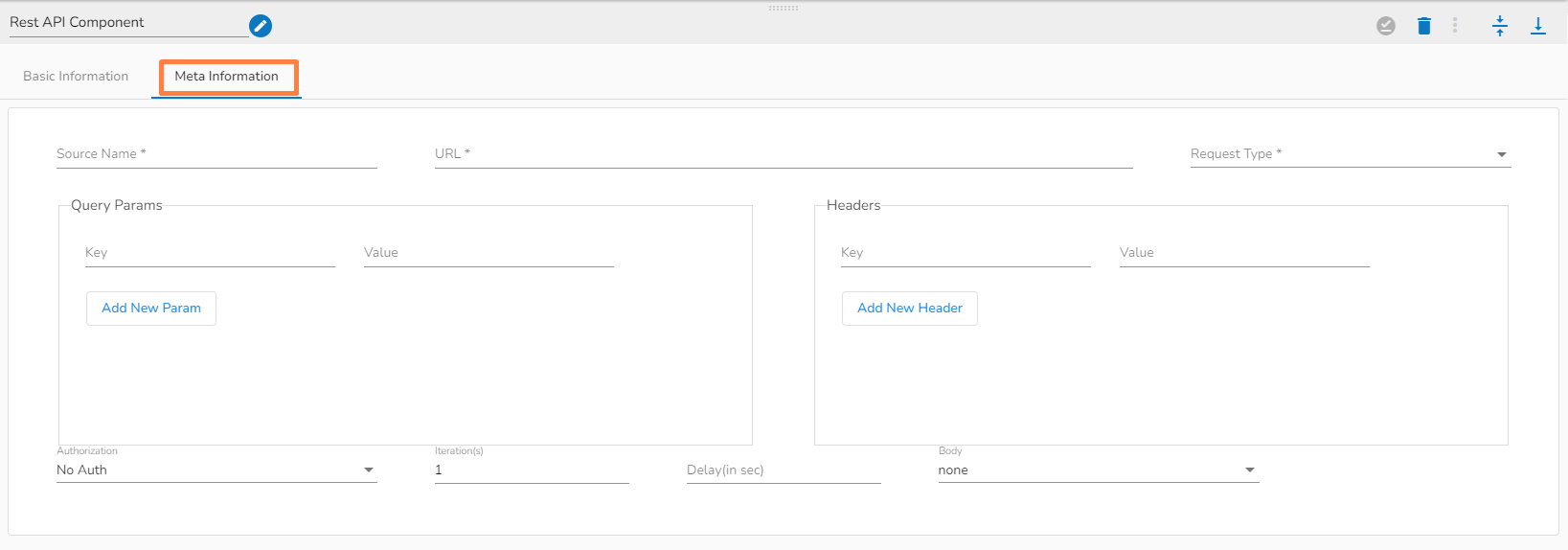Rest Api Component
The REST API component provides a way for applications to interact with a web-based service through a set of predefined operations or HTTP methods, such as GET, POST, PUT,PATCH, DELETE, etc.
All component configurations are classified broadly into 3 section
Meta Information
Configuring Meta Information of Rest API component

Source Name: Provide the name of the source you would like to reference.
URL: It is a unique identifier that specifies the location of a resource on the web.
Request Type: The Request Type refers to the HTTP method or operation used to interact with a web service or resource. The most common HTTP methods used in REST APIs are:
GET: It retrieves data from a resource.
POST: It submits new data to a resource.
PUT: It updates existing data in a resource.
DELETE: It deletes data from a resource.
PATCH: It is to partially update a resource or entity on the server.
Query Params: These are additional parameters that can be passed along with the URL of a request to modify the data returned by an API endpoint
Headers: It refer to the additional information sent in the HTTP request or response along with the actual data.
Authorization: It refers to the process of verifying that a user or application has the necessary permissions to access a particular resource or perform a particular action.
Iteration(s): It refers to the process of retrieving a collection of resources from a web service in a paginated manner, where each page contains a subset of the overall resource collection.
Delay(in sec): It refers to a period of time between when a request is made by a client and when a response is received from the server.
Body: It refers to the data or payload of a request or response message.